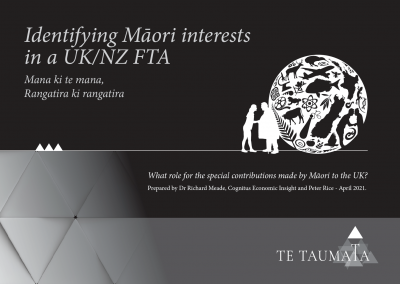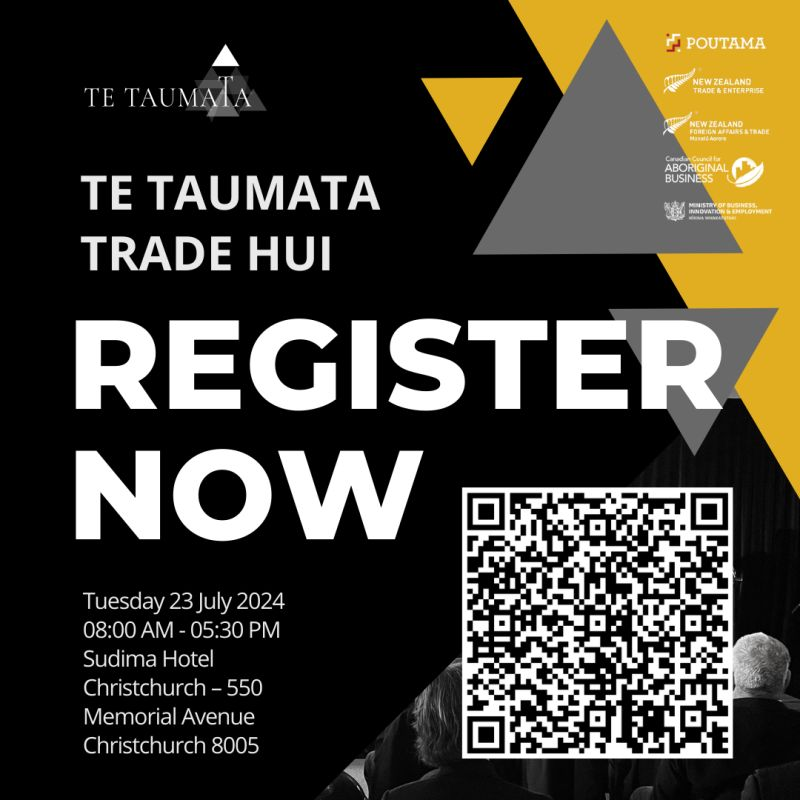Kia ora koutou,
Today we provided Minister Damien O’Connor with our comprehensive analysis on Identifying Māori Interests in a UK/NZ Free Trade Agreement (FTA).
What is a Free Trade Agreement?
According to the Ministry of Foreign Affairs and Trade (MFAT), an FTA is a ‘set of rules’ for how countries treat each other when it comes to doing business together.
“FTAs open up market opportunities, streamline processes, reduce costs and create more certainty and security for companies doing business overseas – they help New Zealand businesses become and remain more competitive in overseas markets.”
“The focus of an FTA is primarily on economic benefits and encouraging trade between the countries by making it more efficient and profitable.”
Who commissioned the report and why?
The Identifying Māori Interests in a UK/NZ FTA analysis was commissioned by Te Taumata to ensure Māori have a genuine opportunity to represent our Māori business exporters, community and whānau interests into Free Trade Negotiations between Aotearoa and the United Kingdom.
We believe our voices should be heard, and we are proud to champion the views and interests of whānau and Māori exporters in all trade negotiations between Aotearoa and the rest of the world.
Over the past 12 months, we have hosted regional hui across Aotearoa. We have heard the call for action and urgency on trade that will lead to employment for our whānau.
The analysis was prepared by economic policy experts Dr Richard Meade and Peter Rice.
So what is the benefit of a UK/NZ FTA for Māori?
Māori have a particular mix of economic social/cultural and environmental interests along with opportunities and challenges. Opening up an FTA with the UK will provide short, medium and long term opportunities for both countries.
By entering an FTA with the UK, Māori businesses, individuals, whānau and communities could benefit through things like improved:
· market access for exports – e.g., lower tariffs on wine and sheep products;
· ability to access services from or provide services to the UK – including through the improved ability to reside, work and/or study in the UK; and
· open the door for Māori to access investment capital, education, occupational training and research, and skills in things like low emissions technologies, life sciences, and language revitalisation – all areas in which the UK has world-class capabilities.
It’s important to note that all FTA’s with Aotearoa contain provisions preserving the Crown’s ability to honour its commitments to Māori under Te Tiriti, the Treaty of Waitangi.
Māori have fought beside Britain and alongside her allies and have suffered dearly, tragically losing many of our own. This agreement presents a rare opportunity to recognise the significant contribution made by Māori to the United Kingdom.
Our analysis sets out the benefit of a UK/NZ FTA for Māori in-depth. We look forward to seeing the effects of such a new agreement that will ripple down to our mokopuna for generations to come.
We will update you on any progress that is made by trade negotiators on this FTA in due course.
Ngā mihi,
Chris Karamea Insley.


